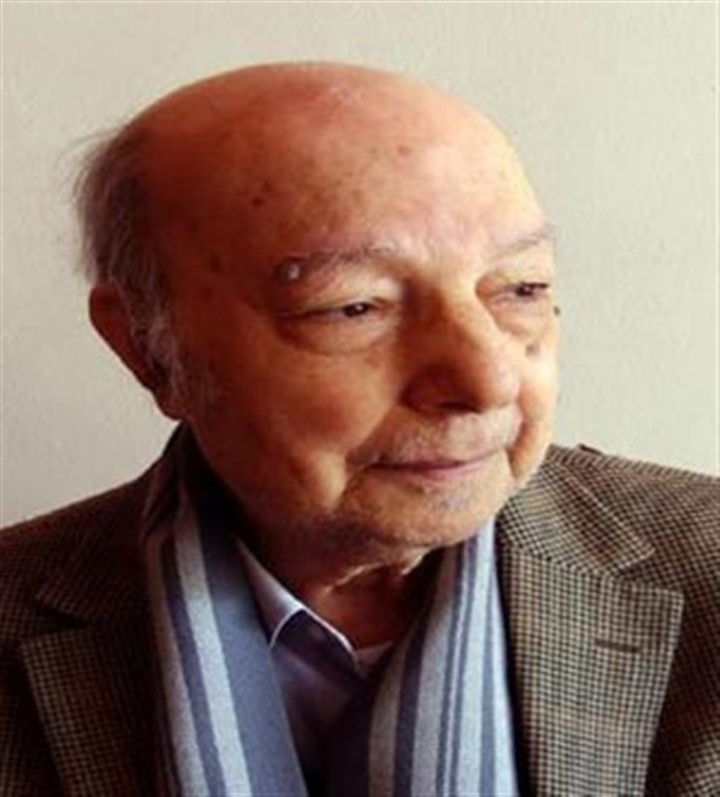A prolific author and reader, Ali al-Shawk embodied scholarship, transforming himself into a veritable encyclopedia of intellectual knowledge. His humility endeared him to his friends and set a worthy example for others. He remains particularly known for being a good listener and for his non-confrontational ways, listening “to you until you finished talking before offering his own opinion,” according to Mahmoud Saeed. His writings encompassed the topics of mathematics, music, painting, literature, etymology, mythology, and science, and he wrote continuously until his death in his London home this year.
Born in Al Karada Maryam, Baghdad in 1930, Ali al-Shawk left Iraq for Beirut in 1947 before leaving to attend Berkeley for his studies. There, he earned a bachelor’s degree in mathematics and discovered a love for music, which quickly became a subject near and dear to his heart. After leaving Berkeley and returning to Beirut and then to Iraq, Al-Shawk became politically active and as a progressive, joined the Communist Party and worked as an editor in leftist journals. However, his communist views did not emerge out of class status and ideology, but rather were romantic, influenced by other big-name intellectuals who were communists. His activism came to an end after the 1963 coup. With his freedoms restricted in Iraq, he left the country went into exile in 1979, traveling between Prague and Budapest, where he worked with the Palestine Liberation Organization, before ultimately settling in London in 1995.
Al-Shawk always stressed the importance of reading and armed with the knowledge from his own voracious intellectual appetite he authored 22 books, from “Fantasia Thesis” to his most recent and final publication, the autobiographical “Writing and Life.” His books “A Tour of the Regions of Language and Myth,” “The Secrets of Music,” and “Music Between East and West” examined schools of music and music history. Al-Shawk’s novels included “Tamara,” “A Letter from an Unknown Woman,” “A Girl of a Special Type,” “The Opera and the Dog,” and “The Mirage of Red.”
In a forthcoming essay in Al Jadid, Mahmoud Saeed, in “Ali al-Shawk in the Eyes of One Acquaintance,” reminds us that Al-Shawk’s death leaves an empty space that no one can fill. In Saeed’s words, “Ali al-Shawk’s writings contributed to closing a yawning gap in Arab intellectual culture that stemmed from the belief that colonial civilization is superior to ours in all fields, including science and politics.” Al-Shawk alerted us to an inferiority complex that had contributed to our growing weakness, dependency, and emulation of our colonizers, reducing us to a toy in their hands.
Ali al-Shawk’s last days were not dissimilar to those of other great intellectuals. However, what made his struggle painful to his close acquaintances and friends were the times he spoke of his struggles with hearing impairment, cognitive impairment, and depression.
Excerpted from Mahmoud Saeed’s “Ali al-Shawk in the Eyes of One Acquaintance,” which appeared in Al Jadid Magazine, Vol. 23, No. 76, 2019.
Copyright © 2019 AL JADID MAGAZINE

